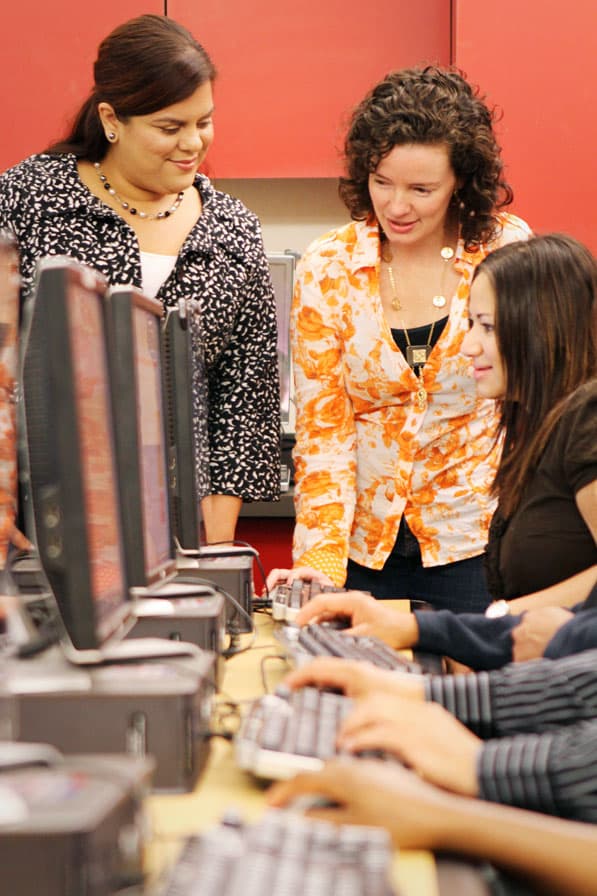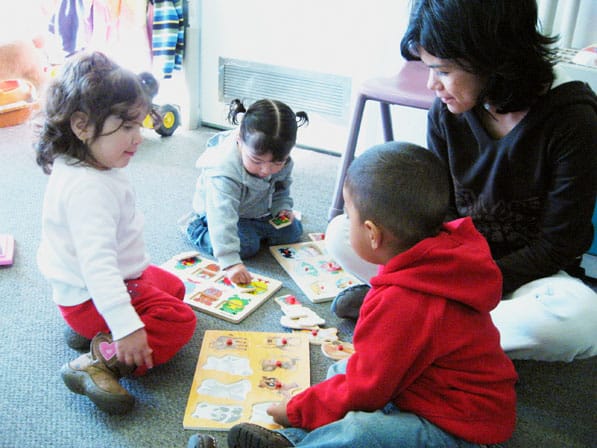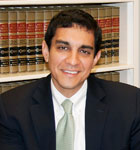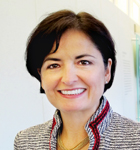
Raquel Donoso has always known that supporting and furthering the Latino community was her passion. Perhaps her drive came from her father, who immigrated to the United States from Quito, Ecuador, where his family made a living as small business owners, or possibly from her mother, whose family moved to Texas from Puebla, Mexico, before settling in Los Angeles. Most likely it was a combination of both, as well as the lessons they imparted on her and the push they gave her, a constant repetition of, “anything is possible.”
While working toward her graduate degree at University of California, Los Angeles, Donoso had her first opportunity to become involved with leadership programs—one in particular, a Latino-leadership program, stood out to her. “The program introduced me to public policy where we drafted and advocated for a bill in Sacramento to train and pay home health workers a better wage,” Donoso explains. “This work led to me focus on public policy and specifically health policy.” Donoso’s public-policy efforts continued at UCLA where she also began working for the Center for Health Policy Research, making research and data more accessible to community-based organizations, especially those working to improve the health of their community.
“After graduate school I joined the Latino Issues Forum in San Francisco to manage their health-policy program,” Donoso says. “As the program manager I was responsible for statewide policy to increase health access and outcomes for the Latino community.” Within a few short years she climbed the ranks to associate director of the organization and was responsible for multiple programs focused on health, education, and the environment. “After seven years with the Latino Issues Forum, I left to join the Latino Community Foundation. I wanted to start building a better future for California by investing in Latino children and their families.” This move brought Donoso’s lifelong desire to become more involved with the Latino community full circle. Today, she serves as the executive director of the nonprofit organization.
The Latino Community Foundation (LCF), which was originally started in 1989 with the goal of increasing philanthropy to and from the Latino community, currently works in eight counties of the San Francisco Bay area and will be expanding to two more shortly. “It was long known that foundation funding to Latino-based organizations was not sufficient to meet the growing needs of the Latino community,” Donoso explains. “LCF was developed to address this issue and invest in programs that would build a better future for Latinos.”

Over the years, LCF has authored several reports highlighting the educational and financial issues of the Bay Area’s Latino community. Based on this research, LCF has created several programs to address these issues including Lee y Seras, which encouraged early literacy and parent engagement among school-age children, and an Internet access program that helps Latino families connect with computers and the Internet in hopes of providing them with the skills necessary to join the 21st century workforce.
Donoso also considers the foundation’s Children & Youth Initiative to be one of their most successful programs to date. “More and more people are understanding that Latino children are the future of this state and the country, therefore, more resources and attention need to be paid to make sure that our children receive the educational opportunities to succeed as a community,” she says. The Children & Youth Initiative, which is just over four years old, has invested more than $1 million in 18 different organizations. The organization’s missions range from providing early educational opportunities to increasing parent engagement in learning to preventing teen pregnancy.
For Donoso, the best part of the job is giving out grants to organizations on tight-budgets that are dedicated to making the community and the families within it thrive. “I love to participate in community events that demonstrate how powerful these organizations are,” she says. “It’s absolutely the best part of my work. I meet so many hardworking families that are trying to make a better life for their children in this country. I work with them and for them to make that possible.” Just as her own parents did for her.

